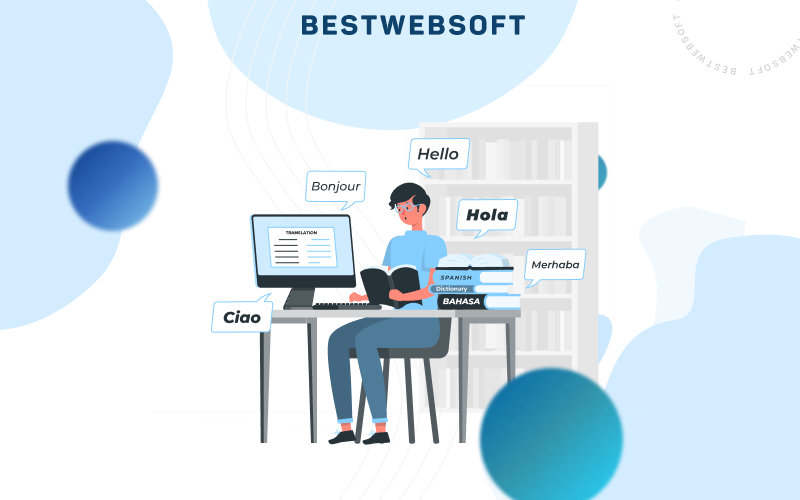
In today’s globalized world, businesses are expanding their reach to cater to a wider audience, and a localized website is a crucial aspect of this expansion. A localized website is a website that has been adapted to meet the specific needs and preferences of a particular culture or region. To ensure the success of a localized website, it is essential to take into account several factors that contribute to its effectiveness. In this article, we will explore the crucial aspects of a localized website that businesses should consider to connect with their target audience effectively.
Content that adheres to cultural, religious, or gender preferences
When creating a localized website, businesses must ensure that their content resonates with their target audience’s cultural, religious, and gender preferences. This means that the language and tone of the content should be appropriate for the target culture, and any cultural taboos or sensitivities should be taken into account. For example, a website targeting a Muslim audience should ensure that the content is halal and adheres to Islamic values. Likewise, a website targeting a female audience should avoid any language or images that are offensive or insensitive to women.
Images, videos, graphics, or even emojis that are appropriate to the target culture
Visuals play a crucial role in conveying messages effectively, and businesses must ensure that their website’s images, videos, graphics, or even emojis are appropriate to the target culture. For instance, if a website is targeting an Asian audience, it should include images that reflect Asian culture and values. Similarly, if a website is targeting a conservative audience, it should avoid using any graphics or emojis that could be considered inappropriate or offensive.
Website design, layout, and formatting that permits translated text to be read from right to left
When creating a localized website, businesses must take into account the target culture’s writing system. For instance, in languages such as Arabic, Hebrew, and Urdu, the text is read from right to left, unlike English, which is read from left to right. Therefore, the website’s design, layout, and formatting should permit translated text to be read from right to left to cater to such cultures.
Local currencies and units of measure
Another crucial aspect of a localized website is the use of local currencies and units of measure. This is particularly important for e-commerce websites that deal with sales and transactions. To avoid any confusion, businesses should display prices in the local currency and use local units of measure, such as kilograms or liters, rather than pounds or gallons.
Adapted date formats and phone numbers
Dates and phone numbers can also vary across different cultures and regions. For instance, in the United States, dates are typically written in the MM/DD/YYYY format, whereas in Europe, they are written in the DD/MM/YYYY format. Similarly, phone numbers may have different formats depending on the country or region. To cater to the target audience effectively, businesses must use the appropriate date formats and phone number formats for the target culture.
Correct naming conventions
When it comes to creating a localized website, correct naming conventions play a crucial role in ensuring the website’s effectiveness in the target market. This includes using the appropriate names for products, services, and even the company itself. It is essential to research and understand the naming conventions of the target market to avoid any confusion or offense caused by incorrect or inappropriate names.
For example, a product name that works well in one culture may be offensive in another. Therefore, businesses need to ensure that they have a good understanding of the target market’s language and culture to make informed decisions on naming conventions. This can involve hiring local translators and marketing experts who understand the target culture and can provide valuable insights into the naming conventions.
Compliance with local regulations and legal requirements
Compliance with local regulations and legal requirements is an essential aspect of creating a localized website. This involves understanding the laws and regulations that apply to the target market and ensuring that the website complies with them. Failure to comply with local regulations and legal requirements can result in legal consequences, which can damage the company’s reputation and financial position.
For example, the European Union’s General Data Protection Regulation (GDPR) requires companies to obtain explicit consent from users before collecting or processing their personal data. Therefore, companies need to ensure that their website’s privacy policy and terms of service comply with the GDPR’s requirements when targeting European markets.
Tools to achieve all above
There are many tools available that can help businesses create a localized website, one of which is the Multilanguage plugin by BestWebSoft. This plugin allows businesses to easily translate their website content into multiple languages, which is essential for reaching a wider audience and expanding into global markets.
Multilanguage plugin by BestWebSoft is an excellent tool that can help businesses create a localized website that adheres to cultural preferences, is appropriate for the target culture, and complies with local regulations and legal requirements. By using this plugin, businesses can successfully expand into global markets and reach a wider audience.
Conclusion
Creating a localized website requires a deep understanding of the target culture, language, and legal requirements. Content, images, videos, graphics, website design, layout, formatting, local currencies, units of measure, adapted date formats, phone numbers, naming conventions, and compliance with local regulations and legal requirements are all crucial aspects that businesses need to consider to create an effective localized website.


